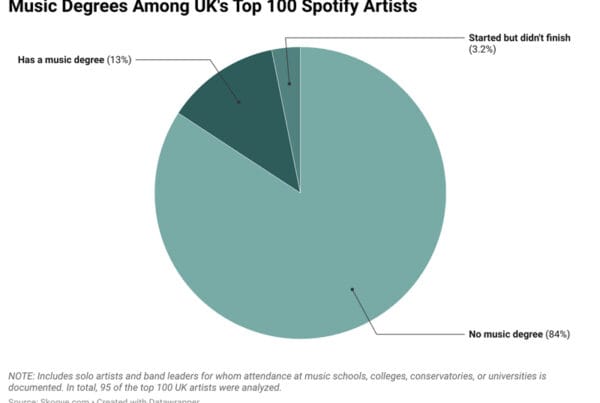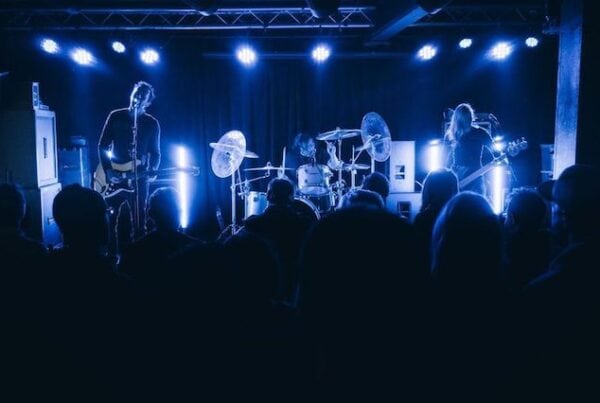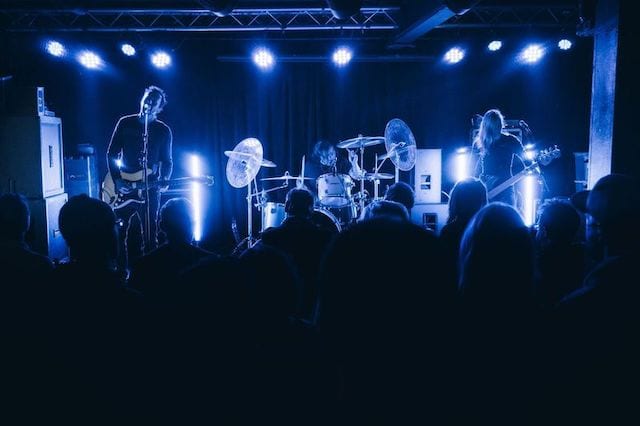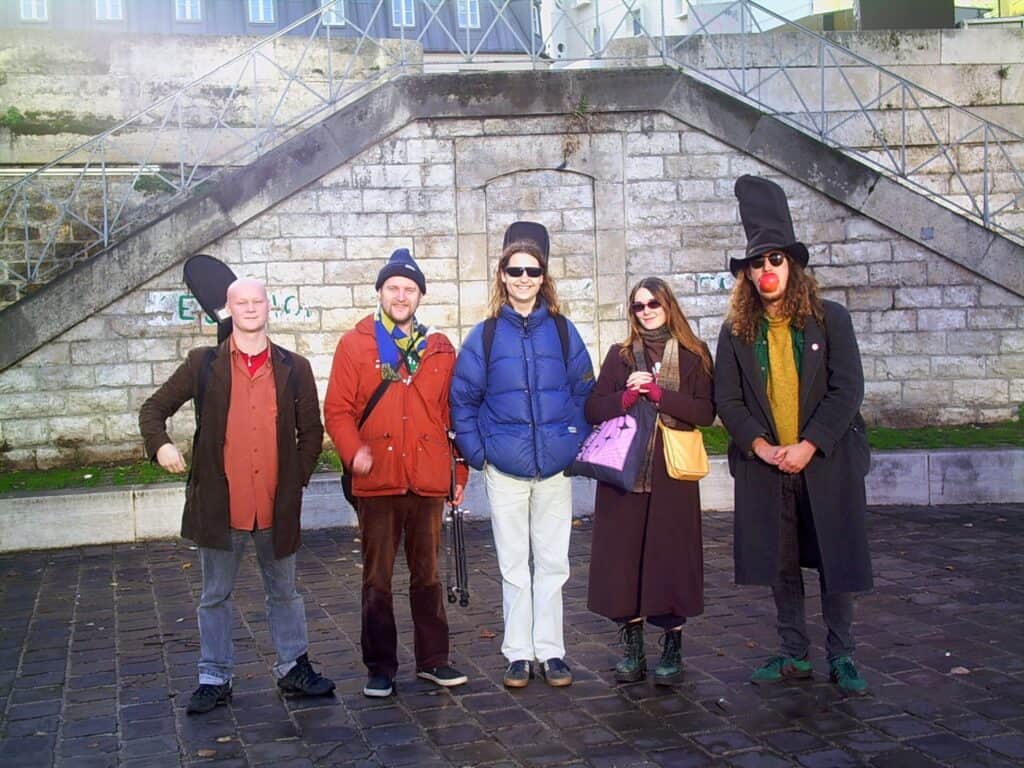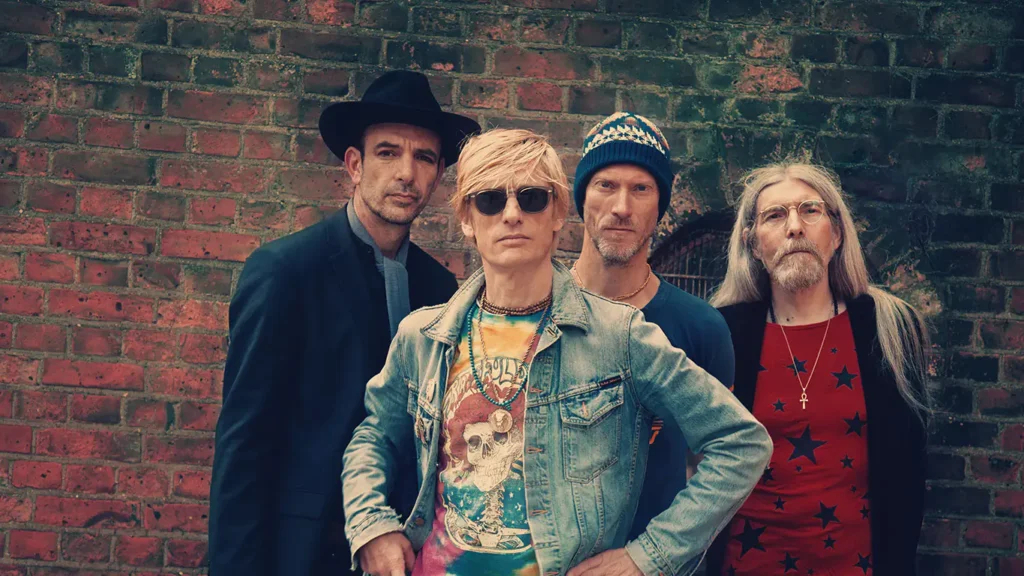The DSM IV’s debut album New Age Paranoia makes a definitive statement as a debut record. The social commentary teased in the album’s name is omnipresent in the lyricism, tackling a variety of topics. For frontman Guy McKnight, the album title comes steeped in the current climate of media, and the direction it’s going.
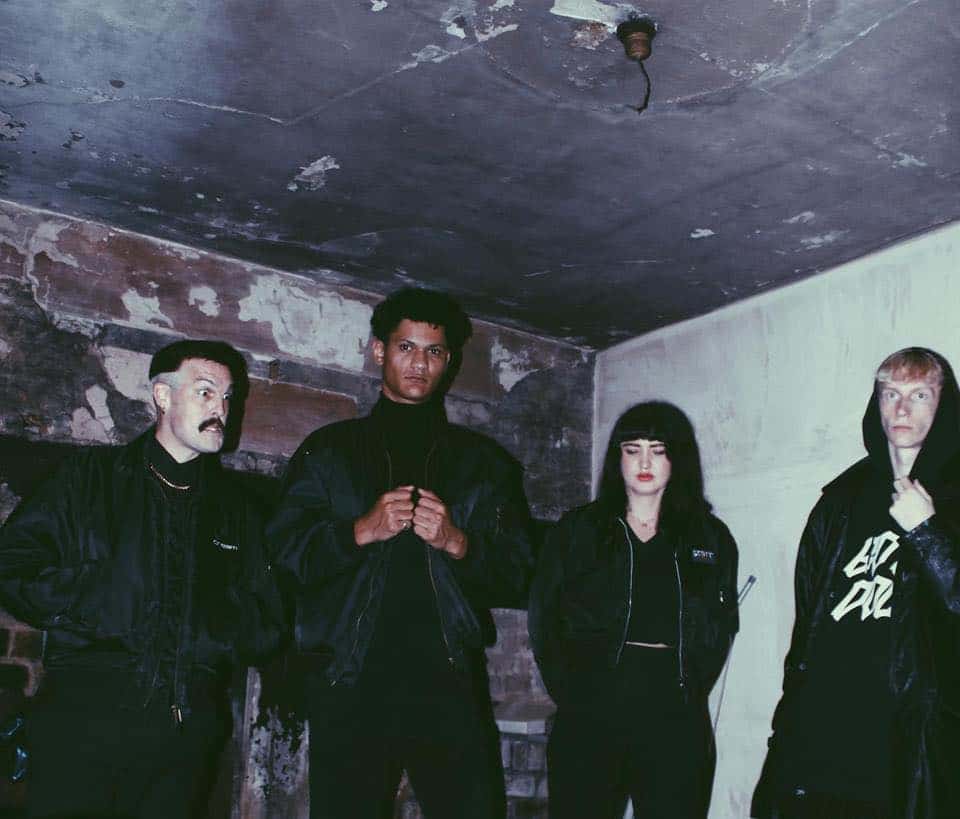
“Once we’d written the tracks and decided which were the keepers for the album, it became apparent that a lot of it was dark. What I realised was this theme running through it that highlighted how the entertainment industries – not just music but film, things we watch on streaming platforms like Netflix and whatever else – as well as mainstream media seem to really capitalise on murder and death and have a tone that catastrophises. It seems as far as I can see that the line between entertainment and news has become blurred and more Americanised in regards to the style of reporting and presentation on television. I would say more paranoid. I think it seeks to create fear and disunity and goes for our primal fears and looks to push those buttons.”
The title of the album has its origin from an encapsulation a fan gave of the band’s essence “A guy who comes and watches our shows, and is dancing in the ‘Scumbag’ video, after one of our sets interjected when asked how you’d describe it or what it was about and said ‘New Age Paranoia.’”
What this descriptor evoked for McKnight was the anxiety fuelled by sensationalist media programming “It’s interesting and problematic how much of our entertainment plays into our fears and makes people kind of scared of each other. True crime seems to have snowballed into this huge desirable genre and I admit that I watch some of it myself, but some of it is too much and I don’t know why anyone would want to watch it. [New Age Paranoia] is really a kind of observation about the time we live in, and a lot of those observations are taken from the media.”
With The DSM IV’s incorporation of programmed beats and live instrumentation, it’s easy to see shared genetic makeup with both the current post-punk revival and the bands that exist around its fringes, such as Sleaford Mods and Benefits. Having toured with Sleaford Mods across France, Guy sees both the connections and disparity between their bands.
“Touring with Sleaford Mods was a great experience and their audience really seemed to resonate with what we’re doing. I think they’re more politically motivated than we are, which is no bad thing. With Sleaford Mods there’s more of a spoken word, talked or barked delivery style that includes Happy Mondays, certainly Mark E. Smith, John Cooper Clark. I think there are various acts that have similarities that intersect at some point. A sort of punk rock ‘n’ roll with an electronic influence. I really sort of relate to and appreciate the band Suicide in that way.”
Reflecting on their commonality with Suicide’s flickering flirtation with darkness and goth, McKnight elaborates “I think we are inspired by a lot of stuff like books, and dare I see it even certain artists and painters. But for me personally, especially in film. Directors, photography, film scores. Different aspects. To put it in a nutshell, I think it’s always healthy to have a recognition or full-on embrace of the dark, unhinged, existential crisis’s that everyone experiences from time to time in our creativity. Particularly now, in this social media generation, it’s becoming increasingly important.”
Not short of societal observations, Guy credits his quantity of commentary to his constant awareness. “I think I’m just constantly looking and listening. Several times a day I’ll overhear something or see something. Certain sentences tend to bounce out or glow, so I’ll write it down. When we write, record or perform, part of my determination is to try and transcend the confines of my lesser self, my ego, my worries and try to really connect with my fellow human beings. To go beyond with everyone and have a cultural experience. Step outside of the prescribed reality and remember and share something innate that’s deeper, but everyone has.”
In the spirit of always observing the world as it unfurls, the topics dissected on the album continue to grow past the album’s release. “Over the past four years, at least, with Brexit, which has resulted in the cost of living crisis, Covid and the endless amounts of very odd societal events and trends that seem to be constantly unfolding. I don’t know what it is this week. We’ve had Ukraine, UFOs, you know. There seems to be a really dark, sinister underbelly of society which seems to revolve around elites – including politicians, celebrities, huge business moguls – who look to be involved in human trafficking, horrendous, heavy things. It’s been going on for years but for one reason or another has all been brought to the public’s attention a hell of a lot in the past few years. I’d say there’s definitely some lyrical content about those sorts of things.”
Guy is quick to clarify that through the heavy theming, The DSM IV are not espousing doom. “The album isn’t pessimistic. It’s realist, in my opinion, and for me those things need to be confronted in music. I needed to write about those things at the time. I’ve been subject to abuse throughout my childhood so I could identify with the victims of these things coming to light. Whether it was beatniks in the 50s and 60s, writers and poets who later were labelled the Beat Generation, jazz musicians, there’s always people wanting to express the good, the bad, and the ugly and I just hope that what we do and how we perform it can give people hope.”
Inspiration is a goal clearly important to what Guy is doing in The DSM IV, as he reiterates “I want to continue to make music to inspire. That’s the reason to make it. When you’re feeling down, angry, frustrated, disillusioned, hopeless or lonely, music is such a powerful tool for revival. That’s why I make music, to create something, an expression to recognise. An invisible friend in a way. Something that you can gain strength from, immerse yourself in, be reassured by; That it’s alright. It will be alright, and winter always turns to spring. For other people it might be alcohol and drugs, relationships or money. Perhaps I’m talking about vices there, really. Music is different though. It’s kind of good clean fun (laughing). Music is a really beautiful tool for survival. The simplest art form. You don’t need any education in any of the arts to know whether you like a bit of music. To be able to sing along or whistle a long or to feel it. It’s immediate. In terms of legacy, that’s all I would ever wish to leave – something to encourage someone.”
Regarding legacy, McKnight brings his musical history to the project. Many may know him as the frontman of 80s Matchbox B-Line Disaster. The band disbanded officially in 2013, and it was several years before Guy would re-emerge in The DSM IV.
“I experienced a kind of huge breakdown of some kind. I don’t really know what you’d call it, nervous, mental I don’t know. It was much needed, I welcomed it. I stayed in most of the time for about a year. After that I had to build my whole life back again, my sense of self. But it was true self, much deeper. It was like I had been living on a lot of suppressed experiences since I was a kid. Something that really changed the way I could write was getting involved with an open mic night when I first moved to Liverpool eight years ago. The sole purpose of it was to create community, I think the most people who were down there was between fifty and a hundred. I was doing some backing vocals as part of this band, playing a couple of jams. There was this really great singer, Yash, she was the lead singer but after a few songs she invited me to do lead, and I had to make up the lyrics and melody on the spot. I shat one, but stepped forward to do it. I practice Buddhism and the event was being organised by fellow Buddhists, I wanted to open up my life in that moment and connect with people. I stumbled a bit in the first few moments, but once I let go and decided/realised it didn’t matter if I got it right or not or what anyone thought, this kind of story flowed.”
It’s this he identifies as the root of how The DSM IV puts music together. “After that, the way I could write changed completely. I realised it was because I had made the cause to perform music from a deeper place of contribution, giving, not anything else. Since then, when we write together now in The DSM IV, we just jam, that’s how we write. I’ve found this great freedom has opened up. It’s a very different dynamic from when I was part of The 80s Matchbox B-Line Disaster. That was great for what it was, I’m not knocking that at all, but there were great songwriters in that band and a lot of the time we’d come together to write a song but it was very often people bringing in some or a whole of a song that they’d crafted for others to play. The DSM IV is much more free and open. Just start playing and the songs emerge. Not that we don’t put in the work, but I’ve read both the Beatles and Sabbath, when they start playing the fifth member of the band enters the room. It’s like that with The DSM IV. It’s great.”
Currently amidst a touring schedule that extends from back in August through to the end of the year and into next, McKnight is beaming when recollecting the tour so far. “All of them have been really amazing. People’s responses have been really moving, actually. We just played London at the Shacklewell Arms on Friday and it was really busy, people were just singing along to every song all the way through the set. That was really humbling. I just thought ‘wow, how does that happen?’ You just write songs in your living room, but it’s touching that it means something to some people. So yeah, how’s it going? It’s going well.”
The DSM IV’s UK live dates can be found below:
October
18th – The New Adelphi Club, Hull
19th – Shakespeares, Sheffield
20th – 24 Kitchen Street, Liverpool
21st – Electric Church Records, Winsford
23rd – Voodoo Rooms, Edinburgh
24th – The Hug and Pint, Glasgow
25th – YES Pink Room, Manchester (Supporting The Wytches)
26th – Dareshack, Bristol (Supporting The Wytches)
27th – The Trades Club, Hebden Bridge
29th – Karma Weekender @ Chameleon, Nottingham
31st – Edge of the Wedge @ The Wedgewood Rooms, Portsmouth
November
1st – The Face Bar, Reading
2nd – The Tin Music and Arts, Coventry
4th – Mutations Fest, The Prince Albert, Brighton


